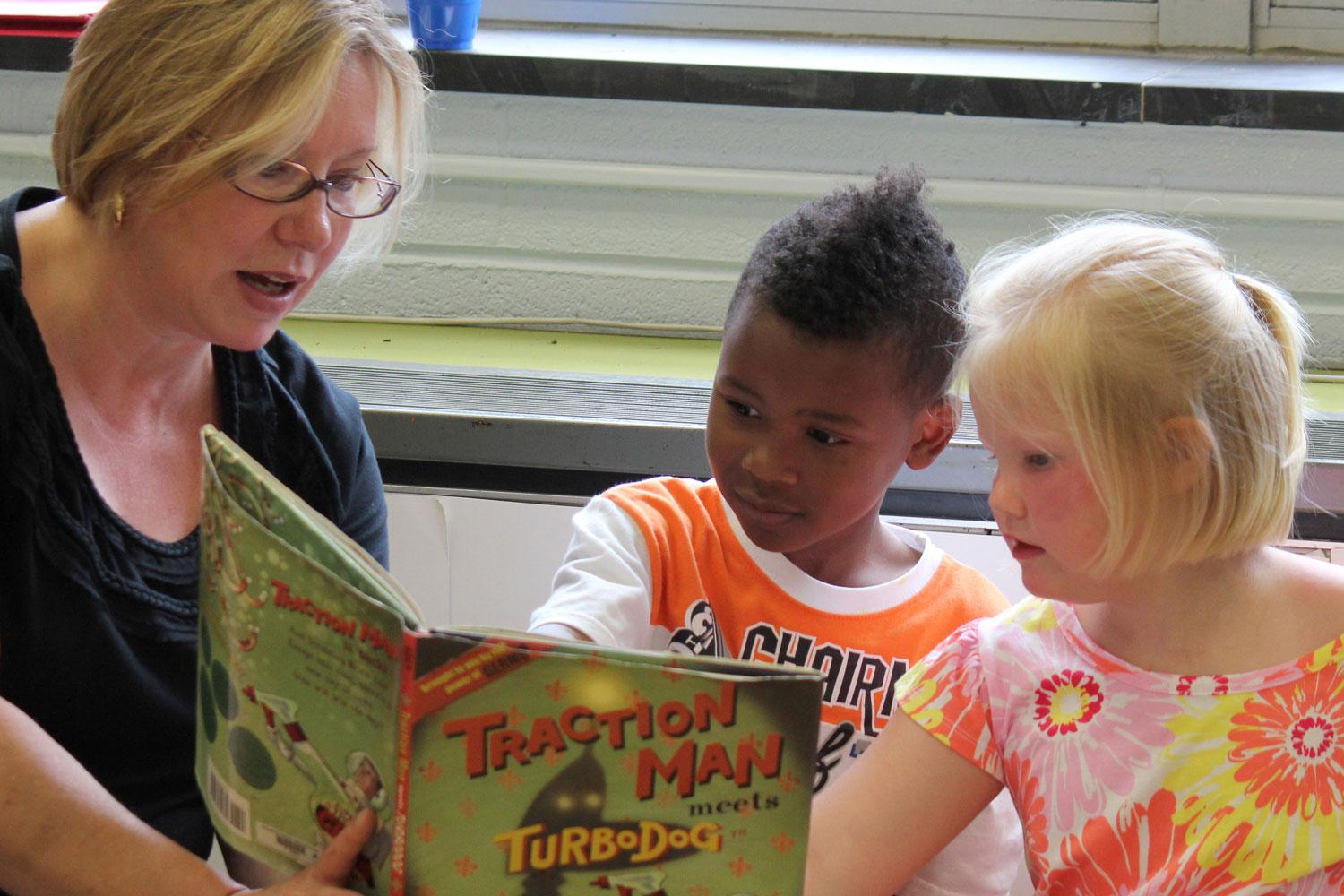
Gifted children often show signs of superior make-up at a very early age. For instance, six week-old Anne followed with her eyes a fly that was buzzing around. She tried to catch it when it came within her reach.

via vanderbilt.edu
This indicated a highly intelligent grasp of a situation and unusual hand-eye co-ordination for her age.
John, also a bright baby, began talking at seven months by pointing to his father and saying “Daddy.”
At 22 months he knew all the verses in his “Mother Goose” book and repeated them as he turned the pages.
A girl from a broken home, Kim, nevertheless, used words like “dictionary” and “encyclopedia” when she was two and three: At four she could spell “encyclopedia,” having learned the spelling from a television program.
These glimpses of gifted preschool children may help parents to recognize early signs of talent in their own children.
Busy little people
Babies and toddlers learn something from everything they do, both “work” and play.
Probably at no time in life does the individual achieve so much as he does in the first two years. He learns to walk, to talk, to cope with his environment, and the people in it.
Gifted children face the same problems as others in acquiring the civilized ways of life. Settling down to regular mealtimes, toilet training, the handling of objects like spoons and pushers – none of these things can be hurried with any child.
But the gifted child wants to be physically and mentally active.

via Huffington Post
Success in the most elementary play, such as putting a peg in a hole or repeating a newly learned sound, gives early delight and a sense of achievement.
As the child learns to do and to think more and more, the sense of playing should be preserved, although he should be helped to realize that any kind of achievement requires effort.
It is very difficult to tell parents what to expect of bright children at different ages, because, even in the same family, they vary so much in temperament and abilities.
Gifted children usually delight in familiar words and trying out new words and sounds.
They acquire an accuracy of diction and their sentences are meaningful, unlike mere chatterboxes who talk all the time without saying much.
Their curiosity is great, and they tend to have more imaginary companions than average children.
Most parents are very concerned to provide a stimulating or challenging environment for their gifted child.
The first rule here is for safety. There should be no harmful things that the child can swallow, burn or cut himself with, fall from, or push over on himself.
One of the most enjoyable ways of enriching the environment of a clever preschool child is by telling him stories stories that delight and amuse; stories that help the child to interpret his experiences and to clarify his thoughts; stories that help him understand himself, his world and other people.
Nonsense rhymes, puns, and other kinds of humor help to improve the child’s pronunciation and increase his sensitivity to words, as well as give enjoyment.
The words and phrases that make him laugh attract his attention. Most adults will remember how they liked the sound of “Fe, fi, fo, furn.”

via virginia.edu
They “pick up” reading
Poetry, too, makes the child aware of the wonder of words.
Even before they learn to read, gifted children have many pre-reading experiences. They are curious about the words in books, on tinned foods, cereal packets, road signs, and television, and develop their own way of recognizing these words, acquiring knowledge of the alphabet as they go along.
Madame Curie is said to have learned to read fluently, without anyone’s knowing, as she sat beside an older sister who was beginning to learn to read.
Many gifted children are never taught to read. They are not even conscious of learning to read. One bright boy who was questioned on how he learned to read said: “I got interested in books and read them, that’s all.”
“Old prehistoric dinosaur”
Conversation is one of the best preparations for reading.
Long and strange words delight bright children throughout the preschool period. One was heard gleefully calling a playmate, ”You old prehistoric dinosaur!”
Preschool children need a variety of activities. Going to nursery school or Sunday school, learning dances, visiting friends, playing with other children all provide social contacts through which the child learns.
Playing word-games, making scrapbooks, “helping” mother, painting or modelling with inexpensive art materials, playing with toys all build up knowledge and experience.
Help, when given, should be constructive. But if a child makes a mistake he shouldn’t be belittled.
Scolding, criticism, and disparaging remarks give the child the impression he is stupid, bad, or a disappointment.
Earlier than most children, the gifted child will accept the reasonableness of a rule or request if it is explained to him. If disciplinary action is necessary, he will often understand when the parent explains the reason for his action.
